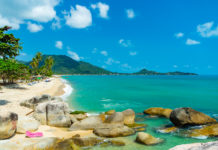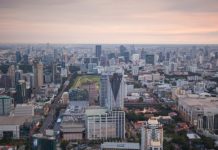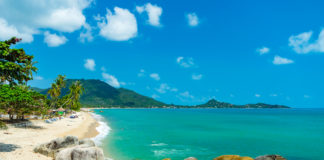We all look at the travel brochures and look on TV and think that Thailand looks an idyllic place to visit and perhaps even live. With an excellent year round climate, quality healthcare facilities in the major cities and the general friendly nature of the Thai people making the whole place attractive to everyone. The place often comes in the top 5 places to retire in the World with the cost of living being generally far cheaper than the West and there already being well established expat communities are around the country.
So what do you need to retire in Thailand?
Assuming that you are planning to live in Thailand for any significant length of time, certainly over 90 days per year then you need the appropriate visa. To qualify for a Retirement Visa you need to have THB800,000 deposited in a Thai Bank for at least 3 months prior to your application or a monthly income of the equivalent of THB65,000 per month or a combination of the two.
You can apply for your retirement visa assuming that you have all the correct documentation at the Thai Embassy in your home country or at a range of Thai Consulates around the World. You can also apply once you are in Thailand but if you have decided to move lock, stock and barrel you may want the security of having this arranged before you arrive. This visa will allow you to stay in Thailand for a period of 12 months but you will need to report to the local Immigration Department every 90 days – a procedure known as 90 day reporting. To reapply you will need to meet the same criteria the following year.
* The rules regarding visas in Thailand can change without prior warning so it is always advisable to speak to the Thai Embassy or an expert prior to travel.
Once you have arranged your visa and found somewhere to live it is always advisable to make sure that you have appropriate health insurance although at present this is not a requirement for your visa. Healthcare in Thailand, in the larger private hospitals at least is of a good standard and basic out-patient treatment is relatively cheap. However, for anything serious that requires hospitalisation the bills can easily run into to tens of thousands of dollars so this needs to be a consideration.
Where are the best places to stay in Thailand?
Well, this is a difficult question and probably depends more on you as an individual and what you enjoy doing and what sort of lifestyle that you want to lead. Some of the most popular locations for retirees are Bangkok, Chiang Mai, Phuket, Pattaya and Hua Hin, all of which have well established expat communities. For those who are looking to live a bit more of a ‘local life’ other destinations include Korat, Buriram and Khon Kaen.
Like everything, it is probably best that you stay in each of these areas for a period of time to see what you feel most comfortable with unless you have prior experience. For reference here is a very brief description of what you can expect to find in the major expat destinations.
Bangkok
Bangkok is the capital city of Thailand as has all the things that you would expect in a major capital city. There is plenty to see and do as well as a vast range of restaurants in which to eat. If you live towards the centre of the city there is an excellent public transport system in terms of the BTS (Skytrain) and MRT (Underground) that is fast, efficient and clean. Taxis are also plentiful and cheap. There are several private hospitals so healthcare isn’t an issue.
The downsides are that it is a very busy city if you are used to something a little quieter and the cost of living is more expensive than other many locations.
Chiang Mai
Chiang Mai is located in the north of the country and is another popular destination with expats. There are still plenty of things to do in Chiang Mai such as sightseeing and visits to markets although not to the levels of Bangkok. There are many restaurants and bars and public transport in the form of Songtaews and Tuk Tuks is easy to come by. The area is affected far more by the changing seasons so it is a popular place with people preferring cooler winters.
The downside is that is a very spread out city, the traffic is often congested and you may need your own transport to get to many areas.
Phuket
Phuket is a beach lover’s paradise. Again there is plenty to do and a wide selection of bars and restaurants with water sports and golf also being popular with the more active. There is a large expat community already established so making new friends should be relatively straightforward.
The downside with Phuket is that is quite expensive and can be affected more by monsoons in the rainy season than other places due to its proximity to the tropics.
Pattaya
Pattaya is often regarded as a place for single males to retire although this is often for the wrong reasons. There are plenty of groups for singles to join such as golf clubs, bridge clubs and other such like. Golf is a big attraction in the area as too are the many bars. It certainly does cater more for males but there is still plenty for retired ladies to do. Transport is again excellent as too is the choice of bars and restaurants. The East side of Pattaya is much quieter and where many of the housing developments are located.
The downside is that it is very male orientated and is a 24 hour city if you are living in the centre often making it noisy at nighttimes.
Hua Hin
Hua Hin is another golfer’s paradise and has excellent beaches. Far quieter than Pattaya this is a population location for retired couples and again there is a big expat community. There is a wide selection of restaurants and public transport in the form of taxis which are relatively cheap and easy to come by.
The downside is that past golf and the beach there are fewer things to do so may not be as appealing to the more active.











